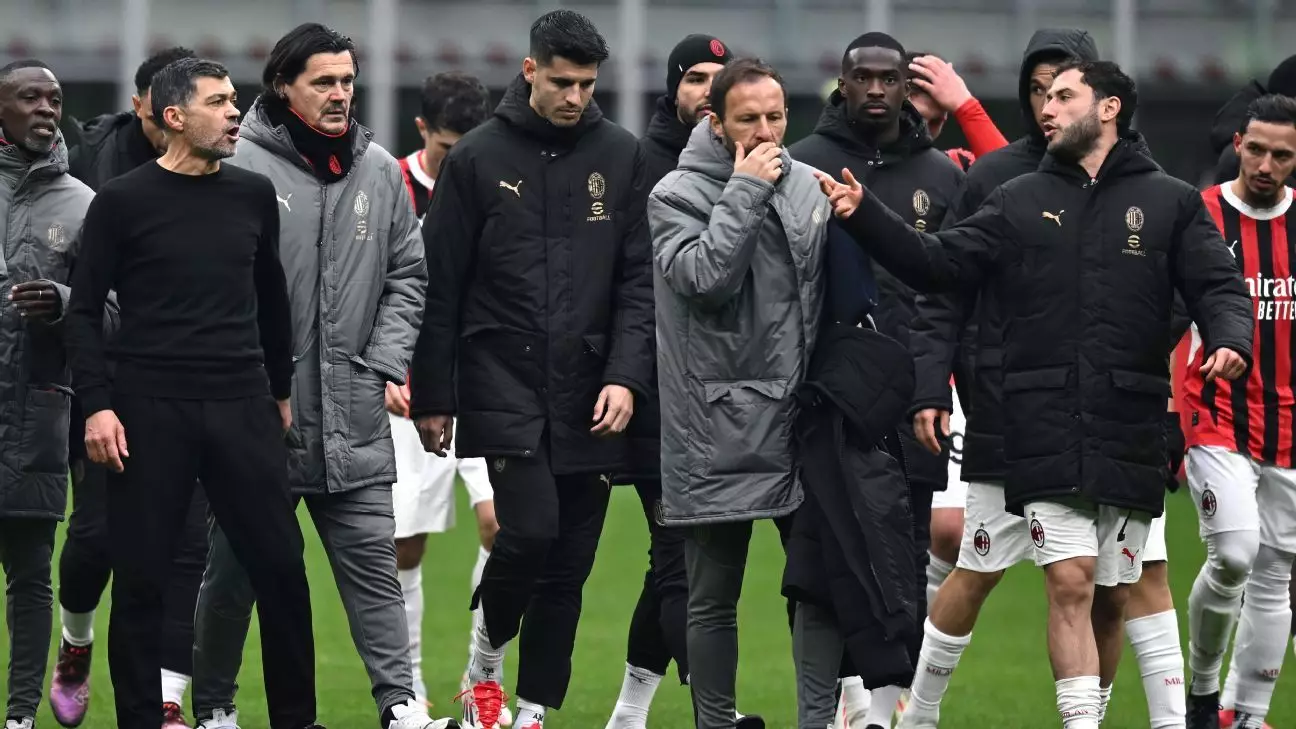Sunday’s match at San Siro provided more than just a thrilling conclusion to a competitive game; it highlighted the emotional undercurrents prevalent in the world of professional football. AC Milan’s last-minute victory over Parma was characterized by not only an electrifying finish with two goals in added time but also a dramatic confrontation between manager Sergio Conceição and defender Davide Calabria. These events illuminated how competition can ignite intense emotions, leading to conflict even within a team celebrating victory.
Understanding the Tensions
As Milan celebrated their hard-fought win, the exhilaration turned into a scene of discord when Conceição and Calabria’s exchanges took a heated turn. Conceição, visibly frustrated, attempted to engage with Calabria, who had been substituted earlier in the match. The incident, requiring intervention from players and staff to prevent escalation, showcased a raw moment of passion—something often hidden behind the veneer of sportsmanship. Conceição later rationalized the situation, attributing it to the emotional intensity of the match. His assertion that the adrenaline of the moment can cloud judgment underscores the humanity behind the roles of manager and player in high-stakes sports.
A Look at Calabria’s Struggles
On a more personal note, Calabria’s campaign with AC Milan has not unfolded as he would have hoped. Having grown up with the club, he has found himself relegated to the sidelines more frequently than desired, marking only his fourth league start this season. The spotlight on him intensified not just due to his performance but because of the leadership transition—losing the captaincy and facing rising competition from new signings like Emerson Royal and Kyle Walker. This evolving dynamic within the squad certainly brings added pressure, and Calabria’s acknowledgment of his unique struggles brings a stark reminder of the human aspect behind the player statistics.
The notion of a team as a family, as propagated by Conceição, adds another layer to this narrative. His analogy of addressing issues within the team like a father would his son reflects a philosophy where open communication is valued, yet it can also potentially lead to misunderstandings and heightened sensitivities. While the passionate environment is essential for competitiveness, maintaining harmony is equally vital for overall team cohesion. Calabria’s sentiments further echo this need for unity in the squad, as he emphasized a desire to prioritize the team’s needs over his own amidst personal challenges.
As AC Milan navigates this tumultuous season, the path forward for both Calabria and the team lies in addressing these underlying tensions. Finding common ground while balancing individual aspirations with collective goals is critical. As players work through personal challenges, the importance of resilience and solidarity within the squad becomes paramount. In football, moments of conflict may arise, but it is the way these moments are handled that ultimately shapes a team’s journey—both in triumph and adversity. The upcoming matches may very well serve as a litmus test for Milan’s capacity to unite and overcome the challenges ahead.

